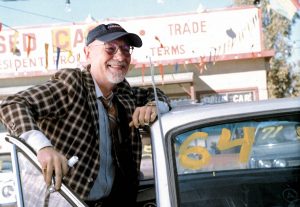
“Volvo plans to … only sell cars online”
https://www.engadget.com/volvo-will-go-all-electric-by-2030-and-move-all-sales-online-091653396.html
GM going all electric by 2035, Ford by 2030 (in Europe), Range Rover & Jaguar by 2025. It feels like new brands are committing to EVs every day but dealers are struggling to sell them (outside California) without discounting them to the point there’s no profit left.
How will the dealerships survive, in this new world?
Automotive manufacturers transitioned to “just-in-time” delivery of components to their assembly plants, in order to reduce inventory costs. This has proven to be immensely successful.
Tesla already has “stores,” where drivers can test drive a vehicle but not purchase one. The client goes to the Tesla website to order the vehicle. There is no haggling over price or add-ons like upholstery protection, undercoating, etc.
Dealerships are in for the fight of their lives. Their business model must change, in order to remain relevant.
Tesla has proven that:
Buyers prefer to NOT haggle over price and are willing to pay MSRP to avoid it. They just want to know they aren’t going to be embarrassed when a friend buys the exact same vehicle for a much lower price. (Until I sold cars for a living, I hated the process so much that I kept my vehicles an average of 8 years.)
Buyers are open to waiting for a vehicle to be built, instead of driving away with it immediately, to get exactly what they want, rather than having to select from what’s on site. (Of course, there will be the need for immediate delivery, such as when a vehicle is totaled in an accident and a replacement is needed.)
Buyers prefer the experience of selecting a vehicle that is more akin to the educational sales approach of an Apple or Tesla Store, with no pressure to buy,
Buyers need a trusted, informed guide, especially in the new world of electric vehicles, in order to understand the available incentives, advantages and lifestyle, of driving electrically. They have questions that traditional salespeople are ill-equipped to answer. (Most EV customer surveys, about the EV buying experience, show that the biggest buyer’s complaint has been poorly informed salespeople.)
Dealerships CAN survive and even prosper, IF they adapt to the new paradigm.
Buyers want the convenience of service centers EVERYWHERE, even in small towns. The dealership model is great at providing this. They want salespeople that are skilled at answering their questions, rather than skilled at closing sales. They want post-sales support from the person who sold them their EV. They will still need a place to trade in their old vehicles and/or buy certified, preowned vehicles. In fact, due to battery longevity questions, buyers WANT a preowned EV that has been fully checked out by a knowledgeable service center. They understand they can’t just take their EV to any old shade tree mechanic for service and are INCREDIBLY loyal to the dealership’s service department, IF they are treated ethically. More and more, they want to customize their EV with styling and lifestyle accessories and prefer to buy accessories that are specifically for their EV and provided through their dealer’s parts department.
The auto industry is about to go through a period of immense disruption. There will be far fewer dealerships. Only the best-equipped to address these needs will survive, but those that do, will be those that add value to the buying experience.

